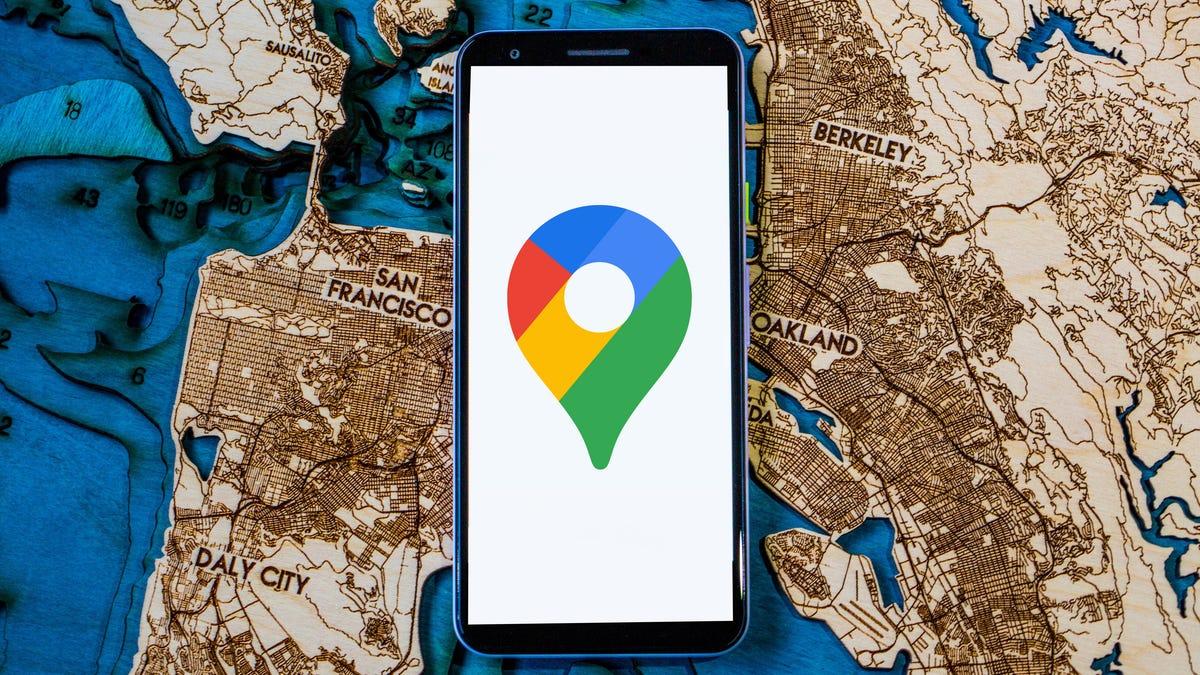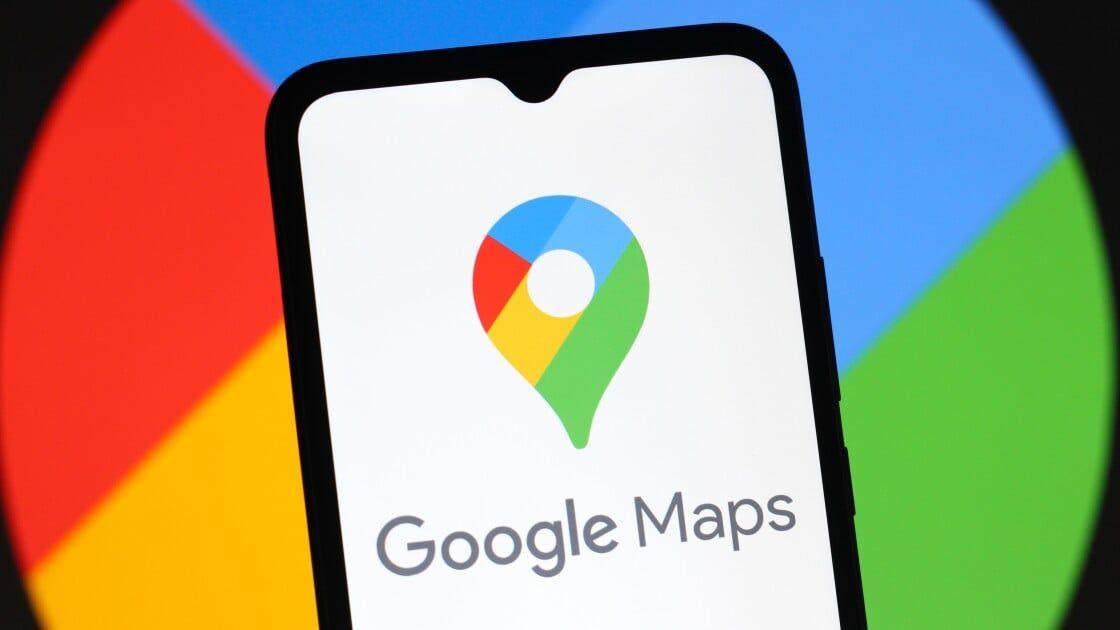Google Leverages AI to Combat Fake Reviews and Scams on Google Maps
4 Sources
4 Sources
[1]
Google is using AI to crack down on problematic reviews on Maps
Google Maps wants you to snitch on the police instead of speed traps Summary Google Maps is using AI to remove scam content like fake reviews and illegitimate profile edits, taking down 240 million problematic reviews in 2024 alone. AI identifies suspicious activity like paid five-star reviews from non-customers, blocking thousands of listings by bad actors and 12 million fake business profiles. Incorporating AI into Google Maps ensures the service remains reliable by preventing rule-breaking listings and reviews. Google Maps is leveraging AI to combat suspicious activity. Google shared today that it's been using AI tools to remove scam content from Google Maps, including illegitimate profile edits and fake reviews. As part of this effort, Google has used "advanced machine learning algorithms" to block or remove 240 million problematic Google Maps reviews from 2024 alone. Google says it's using artificial intelligence to spot abuses in Google Maps, like paid five-star reviews from people who have never visited a particular business. It says that of 2024's 240 million blocked or removed fraudulent reviews, the majority were taken offline before they were seen by any users. Additionally, Maps caught more than 70 million edits to places on Maps that violated the service's terms -- Google uses the example of a business changing its category from cafe to plumber as something that would arouse suspicion from its AI-based moderation. Other AI-enabled Maps moderation includes the removal of 10,000 listings all managed by "a group of bad actors who impersonated real locksmiths to take over unclaimed Business Profiles and overcharge unsuspecting customers;" the blocking of more than 12 million fake business profiles; and restrictions imposed against nearly a million accounts that have violated Maps policies more than once. AI improving a core Google service Google's been all about incorporating AI into its products and services for the past couple of years. Leveraging AI behind the scenes to improve Google Maps is a particularly good application of the tech -- preventing rule-breaking listings and reviews helps ensure the service remains usable, which is arguably more valuable than Gmail being able to help you compose an email.
[2]
Google Maps Is Cracking Down on Bad Reviews
Summary Google Maps reviews continue to improve thanks to AI tools, removing over 240 million fake reviews in 2024. Google is actively blocking fake business profiles, removing harmful content from photos, and restricting accounts violating policies. When you find and read reviews on Google Maps, they should be accurate and trustworthy. In 2024, Google detailed a slew of exciting new features thanks to Gemini, its AI model, and now we're learning how those tools are improving Google Maps reviews. Today, Google Maps is detailing all the progress it made throughout 2024 to prevent and remove deceptive and fake content in reviews. The company explained how it's using several AI tools to remove fake reviews, scam content, and more from Google Maps. Some of these include illegitimate profile edits, fake reviews, and misleading information. Basically, your Google Maps reviews should be better today than last year, and they'll continue to be more trustworthy moving forward. Thanks to several "advanced machine learning algorithms," the company removed over 240 million reviews last year alone. Moving forward, repeat offenders may have a fake reviews notice on the review page, and in some instances, reviews could get temporarily turned off for select locations. The search giant said its AI models and algorithms are getting faster and better at detecting "businesses that try to cheat the system by buying fake five-star reviews from people who have never even visited their establishment" and that it's actively revisiting reviews at a more frequent pace to spot and identify abusive patterns. Related 8 Google Maps Tips Every Beginner Should Know Navigate Google Maps like a pro. Posts 1 In addition to removing nearly 240 million iffy reviews and comments, Google Maps noticed and immediately removed or updated nearly 70 million edits to places that violated the terms of service. It also removed 10,000 listings of bad actors taking over unclaimed business profiles or accounts, and adding misleading information, business details, or reviews. These moves should not only help make reviews more trustworthy but also slow down bad actors or business owners spamming fake reviews to increase their star ratings. This year, people in the US, UK, and India may even notice that some places inside Google Maps won't accept reviews at all. If the company continuously removes fake or suspicious five-star reviews, Maps could take a proactive approach and "temporarily turn off" reviews to slow down all that false engagement, as shown in the image shared above. Then, Google further explained that: "While most of the 250 million places on Google Maps are eligible for reviews, we may limit posting on places that are generally not accessible to the public or tend to attract unhelpful, harmful, or off-topic content." Another huge aspect of Google Maps reviews is photos and video, not just comments and the star-rating system. Google continues to use and refine AI tools to automatically assess all user-submitted photos or videos inside reviews and instantly remove any harmful or offensive media before they're ever published. And while we didn't get a number of how much of this content gets blocked before ever seeing the light of day, it's likely a large number. In closing, Google detailed how it has recently blocked over 12 million fake business profiles and added restrictions to nearly one million accounts (personal and business) that have violated Maps' policies on multiple occasions. So, while we've seen Google Maps slowly get a bunch of AR tools, better navigation, features from Waze like community alerts, and new features appearing all the time, the company is also working hard behind the scenes to keep the experience clean, fun, and free of fake reviews that mislead people. As you all know, Google Maps is great for a lot more than just navigation, and the company aims to keep it that way. Source: Google
[3]
Google Maps expanding 'suspected fake reviews' warnings
Google Maps is detailing its 2024 progress in "preventing and taking down deceptive content," which includes adding fake review warnings. Google credits AI as allowing it to better detect "businesses that try to cheat the system by buying fake five-star reviews from people who have never even visited their establishment." Specifically, Google now has the ability to "revisit reviews more frequently to identify new abuse patterns even months after they were originally posted." In the US, UK, and India, Google Maps is now noting if it "recently removed suspicious five-star reviews in certain circumstances." Reviews might be "temporarily turned off" when fake engagement is detected. In general, Google last year "placed posting restrictions on more than 900,000 accounts that repeatedly violated our policies." Google Maps will begin to show these fake review warnings around the world next month. Google has also "trained a new model with the help of Gemini" that identifies potentially suspicious profile edits.
[4]
New ways AI helps keep business information trustworthy
From reviews and ratings to photos and phone numbers, Google Maps is full of helpful information that connects people with local businesses. That's why we've long invested in technology like AI and highly trained analysts to monitor this information. Here's a look at how we're continuously evolving our practices to help keep Business Profile information reliable. AI has been a pivotal tool in helping us stop scammers in their tracks, and we're now using it to scale our protections even more. Last year, we removed over 10,000 listings managed by a group of bad actors who impersonated real locksmiths to take over unclaimed Business Profiles and overcharge unsuspecting customers. Beyond removing the fraudulent content, we filed a lawsuit against the bad actors and are actively applying what we learned to enhance our detection systems. For example, we trained a new model with the help of Gemini that identifies potentially suspicious profile edits. A business that changes its name from "Zoe's Coffee House" to "Zoe's Cafe" isn't suspicious -- but a business that suddenly changes its category from "cafe" to "plumber" is. Gemini only needs a few examples to learn what's suspicious and can apply this knowledge across many business categories and languages. This new model has already helped us block thousands of suspicious Business Profile edits this year. An honest five-star review is a great way for customers to show appreciation, but there are some businesses that try to cheat the system by buying fake five-star reviews from people who have never even visited their establishment -- this is strictly prohibited by our policies. AI helps us better detect this kind of dishonest behavior. For example, we can now revisit reviews more frequently to identify new abuse patterns even months after they were originally posted. Plus, we rolled out alerts in the U.S., U.K. and India to let you know if we've recently removed suspicious five-star reviews in certain circumstances. These warnings -- which will expand globally starting next month -- help you understand quickly if a place may be engaging in unfair review practices.
Share
Share
Copy Link
Google is using advanced AI and machine learning algorithms to identify and remove fraudulent reviews, fake business profiles, and suspicious edits on Google Maps, enhancing the platform's reliability and user trust.

Google's AI-Powered Crackdown on Fake Reviews
Google has announced significant progress in its efforts to combat fraudulent content on Google Maps, leveraging advanced artificial intelligence (AI) and machine learning algorithms. The tech giant removed a staggering 240 million problematic reviews in 2024 alone, demonstrating the scale of the issue and the effectiveness of their AI-driven approach
1
2
.AI Detection of Suspicious Activity
The company's AI tools are becoming increasingly sophisticated in identifying suspicious patterns. They can now detect businesses attempting to game the system by purchasing fake five-star reviews from individuals who have never visited the establishment. Google's AI can revisit reviews more frequently, identifying new abuse patterns even months after the initial posting
4
.Expansion of AI-Powered Moderation
Google's AI moderation efforts extend beyond just reviews:
- Blocked or updated nearly 70 million edits to place listings that violated terms of service
2
. - Removed 10,000 listings managed by bad actors impersonating legitimate businesses
4
. - Blocked more than 12 million fake business profiles
2
. - Imposed restrictions on nearly one million accounts for repeated policy violations
2
.
New AI Model Powered by Gemini
Google has developed a new AI model using its Gemini technology to identify potentially suspicious profile edits. This model can differentiate between innocuous changes (like minor name adjustments) and suspicious alterations (such as drastic category changes) across various business types and languages
4
.User-Facing Measures
To increase transparency and user trust, Google is implementing several user-facing features:
- Warnings about recently removed suspicious five-star reviews in the US, UK, and India, with plans for global expansion
3
4
. - Temporary disabling of reviews for locations experiencing high levels of fake engagement
2
. - Limiting review capabilities for places not generally accessible to the public or prone to attracting unhelpful content
2
.
Related Stories
AI in Content Moderation
Google's AI tools also automatically assess user-submitted photos and videos in reviews, removing harmful or offensive media before publication. While specific numbers weren't provided, this likely prevents a significant amount of inappropriate content from reaching users
2
.Impact on Google Maps Ecosystem
These AI-driven efforts are crucial for maintaining the integrity of Google Maps as a reliable platform for business information and user reviews. By curbing fake reviews and scam content, Google aims to ensure that the service remains trustworthy and valuable for both users and legitimate businesses
1
2
.As AI technology continues to evolve, Google's approach to content moderation on Maps is likely to become even more sophisticated, potentially setting new standards for trust and reliability in digital platforms.
References
Summarized by
Navi
[1]
[2]
[3]
Related Stories
Google Maps Unveils AI-Powered Tools for Infrastructure Management and Urban Planning
10 Apr 2025•Technology

AI-Generated Fake Reviews: A Growing Threat to Online Consumer Trust
23 Dec 2024•Technology

Google Warns of Sophisticated AI-Powered Scams Targeting Job Seekers and Businesses
07 Nov 2025•Technology

Recent Highlights
1
Google Gemini 3.1 Pro doubles reasoning score, beats rivals in key AI benchmarks
Technology

2
ByteDance's Seedance 2.0 AI video generator triggers copyright infringement battle with Hollywood
Policy and Regulation

3
ChatGPT cracks decades-old gluon amplitude puzzle, marking AI's first major theoretical physics win
Science and Research





